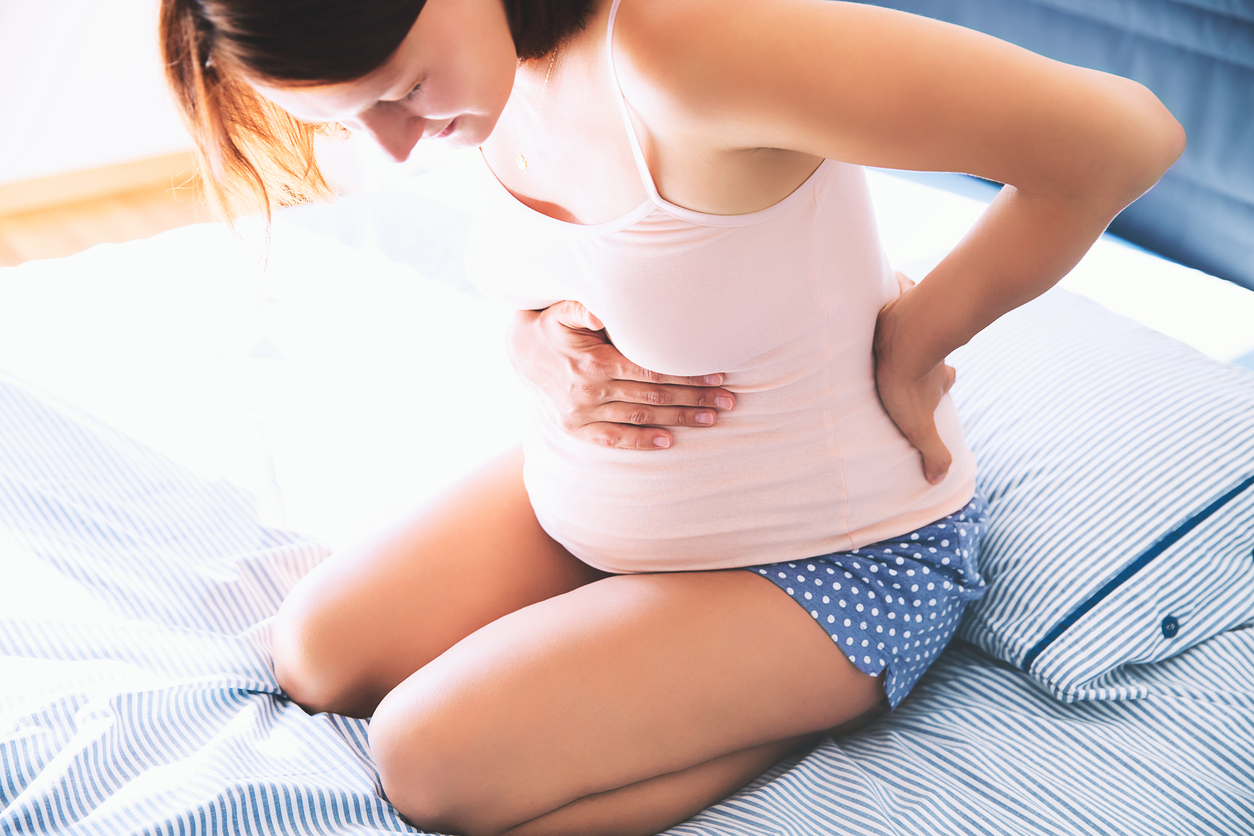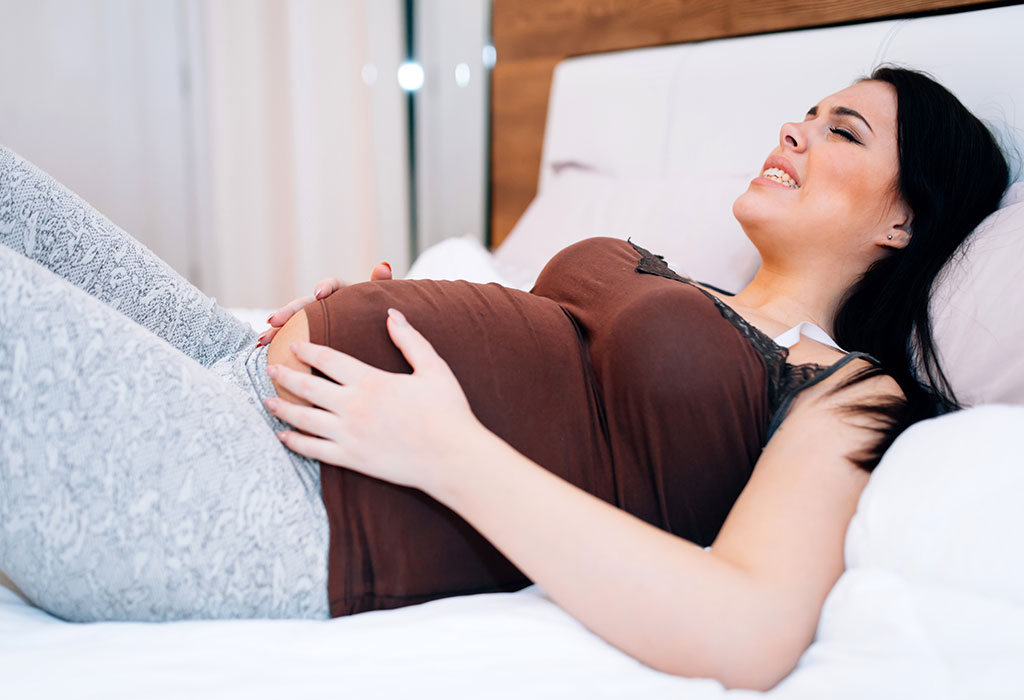19th week of pregnancy
So, you passed almost half a path and now your baby is older than 19 weeks. It's time to go shopping. But what can you do when your belly is allowed in the store only after the 30th week of pregnancy? You cannot buy anything yet - except if your older sister offers her child clothes (yuck), or your husband brings something from his work at the night shift (and it's not an ideal option).
One thing you can take care of even before the 20th week is a prenatal examination, but another thing that will be tested too is how well your uterus works during this period. Pregnancy after forty (when all actions tend to give more harm than good) does not mean complete rest for women in their third trimester.
And if you are younger than 37 years old, so much so that doctors suggest consulting to find out what you can do to make the rest of pregnancy easier, then let's talk about crampings (cramps) that affect almost half of pregnant women.
But first, it is worth noting that pain during pregnancy is usually characterized by its intensity and character. Cramping during the 19th week falls into the "light" category. It can be compared to menstrual pain, but unlike the period when muscles relax, cramps (spastic contractions) experienced in late gestation are accompanied by tightening. So if before childbirth your uterus felt like a softball, now it feels like this ball is filled with sand and it has a heavyweight.
At other times instead of pain people feel pressure or fullness at various sites. These include the lower abdomen and pelvis, thighs, rectum, and vagina. Sometimes uterus squeezes blood vessels located in the skin. As a result of all these sensations, a woman can feel her baby's foot or knee pushing on her bladder while standing up.
Why is the 19th week so special for your baby?
Now fetus is already covered with vernix (white protective coating), has eyelashes and eyebrows. It weighs around 100 g (from 55 to 150) and is 10 cm long (from 7,5 to 12). Nails appear on fingers and toes. Arms are bent at elbows, legs - above the knees. Fetus experiences even more frequent hiccups now. These spasms can be felt by the mother, and if she imitates them the baby will learn how to press his respiratory system.
At this stage, fetal movements usually stop for a few hours every day. It is related to the mother's position: when she lies on her back or moves vigorously, there is no such break. And so as not to disturb the child during sleep time, the mother should choose one of those two positions and stay there all day long. Better yet - all night long too.

With different symptoms, it is difficult to determine exactly what to do when cramping during the 19th week occurs?
First of all, you should relax as much as possible, drink lots of water (but not for a long time), go for a walk or take a shower with warm water. You can also try sleeping with legs elevated about 15 cm above the floor if the pain appears at night. If instead of feeling better after relaxation your muscles become even tenser - bend your knees and lean forward, touch your toes.
If cramps do not go away with these measures, then try to rest. Lie on your side and bend one leg over the other, lay your hand on the lower abdomen (do not press), or better yet, hold your belly applying pressure under - that will calm down the uterus too! You can also try slow rhythmic breathing or meditation.
And, of course, you should consult a doctor. He may prescribe antispasmodic medication for uterine contractions which is highly recommended if the pain starts repeatedly at certain periods of time after 20 weeks of pregnancy.
What else do you need to know about cramping during the 19th week?
If cramping is strong enough it can be felt by others touching your belly! Even your weight gain can contribute to muscle tension. If you are gaining weight fast it is possible that the load on your belly will increase even more, which may lead to cramping or false labor. False labor pains are not of uterine origin but are caused by contractions of the large intestine.
They do not mean early birth - so relax! They usually appear at night or in one particular position, and after passing stool they disappear immediately.
False contractions feel like menstrual pain, but unlike true contractions, they don't lead to further ripening of the cervix and opening up its neck (true ones only). However, if the pain becomes too strong or is accompanied by bleeding - go to the hospital!
In the late 19th-week fetus starts actively moving inside the uterus. Sometimes women report feeling a headache, pain in the pelvis, rectum, and bladder at this time. These complaints can be caused by the usual actions of the fetus but it is still better to consult your doctor - maybe he will recommend X-ray studies or ultrasound to be sure everything's OK.
What can lead to cramping during pregnancy?
Mild pain during the 19th week can be caused by a lot of things - from constipation to the effect of relaxin, a special pregnancy hormone that makes ligaments more flexible and softens them. Relaxin is one of the signs your body uses to get ready for childbirth. This same hormone may also cause cramping in muscles that touch their sinews.
Crampings are also possible if you forget to take medications prescribed by a doctor or simply do not follow his instructions (eg not eating enough). In these cases, it is important to find out if it's a lack of medicine or just a violation of diet. The causes may include:
- Lack of calcium in diet;
- Maintaining unusual position for a long time (eg sitting with legs crossed);
- Low blood pressure.
Cramping should never happen if you eat properly and do your best to stay in good physical shape. Symptoms like these are caused by a lack of calcium, which is necessary for muscle contraction! So make sure you take all supplements prescribed by the doctor regularly - that will help not only prevent cramps but also avoid premature birth.

And finally, even hormonal changes taking place during the 19th week can be the underlying cause of cramping too. These changes are responsible for the feeling of heaviness in the pelvis and lower back that often appears at this time. According to some doctors, these feelings can lead to anemia but it's rare. Hormonal changes may also trigger false labor or dysmenorrhea.
What can relieve cramps?
Cramps can be relieved if you lie on your side, massage your belly with a circular motion, and apply a warm compress to the painful area. Do not avoid food - eating properly will help prevent cramps. However, don't eat too much - that might lead to indigestion! Also, stay away from spicy meals - they are harmful even during normal pregnancy.
As mentioned before, relaxin makes ligaments more flexible causing bladder tensions which can result in incontinence or frequent urination. And believe it or not, these symptoms are often sources of cramps too! So take care of what you eat and drink.
Avoid alcohol and caffeine since they contribute to the production of stress hormones which make the uterus harder. Tea, coffee, and chocolate contain caffeine and should be avoided.
And finally, if you have a problem with a potbelly, tighten your muscles - it can help prevent cramps!
How can you tighten belly muscles during pregnancy?
First of all, be sure you are in good physical shape - that is the key to avoiding cramps. When exercising feel free to use any position but it is recommended to stand up with your hands on hips and make circular motions clockwise (or counterclockwise if your baby feels more comfortable).
Do not forget about hygiene - if you go outside try avoiding sticky weather or high humidity levels. Maintain proper posture when sitting or standing too!
When you can't avoid going out in bad weather cover up properly and take an umbrella with you! If cramps occur at home do not sit or lie down, instead of walking around a bit, stretch your legs and straighten your back. Also, don't hesitate to report problems to the doctor so he could make a plan of action and give you the right advice.
What must be your diet to avoid crampings?
Walking and eating well will prevent cramps and false labor. And you know what is the best way to keep yourself in good shape? By eating properly! So do not forget about the daily intake of certain products. Your body needs them all - from vitamins A, E, B1, B2, calcium to magnesium.
In order to have a healthy diet eat foods high in fiber such as legumes, oatmeal, whole wheat bread, fruits, and vegetables. As for drinks avoid too much coffee or tea since they contain caffeine that stimulates the liver into releasing stress hormones which can lead to contractions. Instead, drink water with fresh lemon juice - it fills up with vitamin C which reduces the chances of cramping.
Papain available in pineapple juice can prevent the formation of cramps. Also, avoid eating spicy dishes and foods that can cause indigestion. Remember, proper nutrition is key to a healthy pregnancy!

When should you be concerned about crampings?
Crampings during pregnancy are usually not dangerous. However, if muscles in the abdomen or legs start hurting badly - it may be a sign of preterm contractions! If you experience them frequently, contact your doctor immediately. It's better to go without risks than to risk premature birth.
So remember that false contractions (crampings) are rather an inconvenience than real labor pains and do not interfere with healthy baby development in any way. Pregnancy week 19 is also the time when all body organs work at their maximum performance so feel free to exercise regularly. Only avoid exercises that require using only one leg (eg horse riding). Instead, try swimming or walking - they will help you stay in great shape without wasting too much energy.
What symptoms are dangerous on the 19th week?
Because you are so close to the delivery date, every little symptom or discomfort can feel like a potential danger. Doctors warn that if you experience:
- Discomfort and pain in the pelvis and lower back accompanied with bleeding;
- Frequent bloody discharge;
- Vaginal infection;
- Fever above 100°F (37.7°C) - contact your doctor immediately! If these symptoms appear, chances of premature birth increase. However, keep calm since the majority of women go into labor without any complications at all. So make sure you enjoy this final journey through pregnancy and give yourself time to adapt to new situations before giving birth.
Bottom line
There's no need for you to worry about crampings during pregnancy - it's a common, harmless, and rather inevitable state. Pregnancy week 19 is a time when women start feeling their baby more clearly and hear its heartbeat.
That said, there are some cases when cramps may be dangerous - for example, if they turn into false labor contractions or dysmenorrhea. In this case, contact your doctor or midwife immediately since these problems may indicate a miscarriage or other serious complications.
Even though pregnancy week 19 should be a time of joy and excitement, make sure you don't neglect your health. Remember to eat healthy meals every day, watch what you drink, and follow the doctor's instructions carefully!